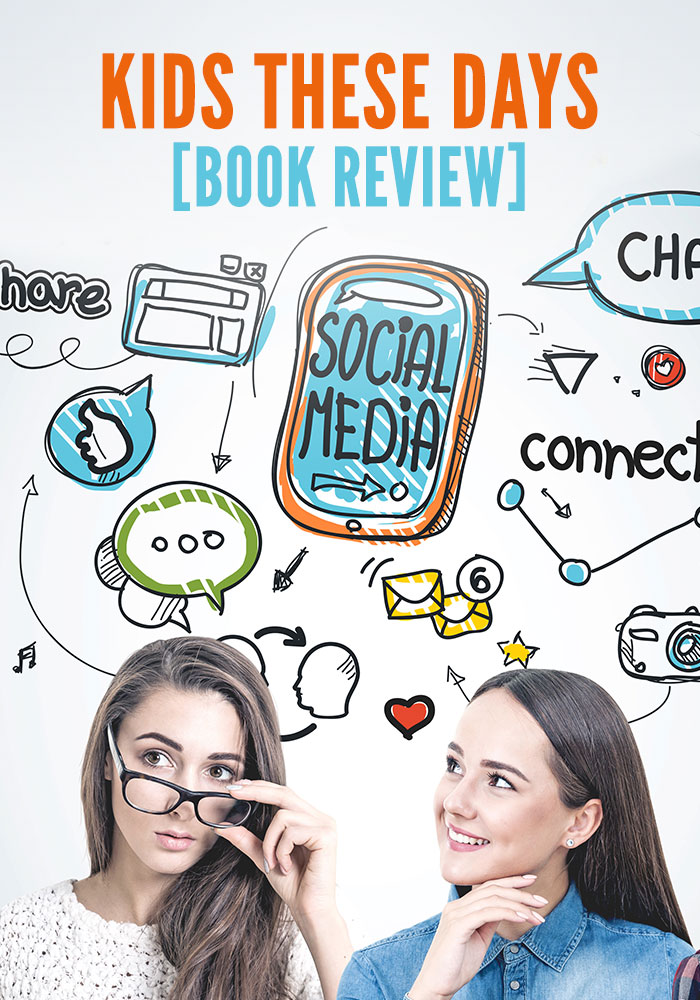Kids These Days [Book Review]

Hey, Mom and Dad! We’re doing the best we can!
Being myself one of those dreaded “millennials” who has been the subject of a seemingly endless popular discourse, I was eager to read Malcolm Harris’ new book Kids These Days: Human Capital and the Making of Millennials. Harris is himself a millennial; the cover of his book proudly marks his birth year: 1988. More importantly, Harris is a well-read and rather attentive cultural critic, and he’s able to deftly weave personal experience with hard data into a compelling description of the challenges that face me and my peers. I want to dig into Harris’ insights and then end the review with some of thoughts of my own.
Childhood Culture
Harris begins his critique with a depressing view of childhood culture. He writes that we have created “a culture in which children are taught that the main objective while they’re young is to become the best job applicant they can be.”
Here is Harris’ bracing description of childhood in 2018 America:
If they track into the right classes, and do their homework, and study, and succeed in the right extracurriculars, and stay out of trouble, and score well on standardized tests, and if they keep doing all that from age five to eighteen, they’ll have a good chance at a spot in a decent college, which is, as far as you can plan such things, a prerequisite to ‘better life outcomes.’ Of course, the more kids who can do all that, the harder everyone has to work to stay on top.
Two quick notes on that description.
First, Harris’ description of this culture most aptly describes public and private school settings, and yet I’d argue that homeschoolers are not immune to the underlying anxieties and thus to the corresponding conformity of behavior we are tempted toward.
Second, you might have heard about the problem of grade inflation, likely presented as another sign that Millennials are rewarded for little effort in an attempt to boost our self-esteem. Harris rips that explanation apart in one pithy sentence: “It’s a twisted system that aspires to train every student for “A” work, then calls it a crisis when the distribution shifts in that direction.”
Myth-Busting in Kids These Days
One way to approach the book is to focus on the myth-busting.
Laziness
For example, as an age cohort, we millennials have been labeled lazy: Harris retorts: “no one puts their whole self into their job like a Millennial who never learned to separate work and life enough to balance them.”
Here’s the substance behind that retort:
Technological development leads to increased worker productivity, declining labor costs, more competition, a shift in the costs of human capital development onto individual competitors, and increased productivity all over again.
In plain English, Harris is describing a reality in which we have spent our childhood working our tails off in academics, extracurriculars, and volunteering, in order to get into a college where we can continue that same work, while perhaps picking up an unpaid internship (“students are paying their colleges and working for companies [or the state or nonprofits], and in return both will confirm for anyone who asks that the student indeed paid for the credits and performed the labor”), all in the hopes that we’ll land a good enough job to pay off student loans that we can’t default on. We’re taking out those loans, by the way, because given the price of tuition we literally can’t work our way through school: we know, because despite it being impossible, we are still trying.
Harris has the exact numbers: “In 1960, 25% of full-time college students between the ages of sixteen and twenty-four worked while enrolled. Now it’s over 70%, and 20% of these undergrads are working full-time hours.” It’s sobering to see the statistics and realize that “for all the jokes about students living off ramen, undergraduates are significantly more likely to experience high levels of food insecurity (in technical terms: ‘hunger’) than to live in a dorm.” Anyway, a full two-thirds of us college students have taken out loans because “succeeding at contemporary American childhood now means contracting out hours, days, years of future work to the government, with no way to escape the consequences of what is barely a decision in the first place.”
Entitlement
Another favorite disparagement of the millennials is that we are entitled, largely due to all those participation trophies. Harris observes that “no AYSO-playing Millennial in fourth grade ever owned a trophy factory – we’re not giving trophies to ourselves.” Participation trophies do tell us a lot about the state of our culture, says Harris: specifically “the market for plastic awards has grown with the level of competition, organization, and anxiety about success.” And to be clear, that anxiety begins with parents who are understandably concerned about their children’s increasingly precarious economic future. That same parental anxiety, by the way, likely explains why so many school-kids are over-medicated. Harris writes of this that:
Once again, we’re confronted with the conflict between what nearly everyone will recognize as a social problem (‘too many kids are being medicated to improve their academic performance’) and the very material considerations that weigh on any particular decision (“but my kid is having a really hard time focusing, and the PSAT is only a year away.’)
Speaking of sports, Harris is also no fan of how lighthearted childhood play has been professionalized, becoming just another tool for application-building: “Organized sports have taken the place of self-organized play, and though league games count for their college applications in a way that sandlot ball doesn’t, kids are missing out on the important experience of following and enforcing their own rules.” He also wryly observes that “in the age of rationalized training regimens, autonomy gets in the way of labor development.”
Mental Health
By the time we get to Harris’ review of the research on mental health, we as readers already know the picture will be bleak. Even anticipation, however, can’t soften the blow of a sentence like this: researcher Jean Twenge’s “meta-analysis suggests that depression has increased 1,000 percent over the past century, with around half of that growth occurring since the late 1980s.” We likely all have our own anecdotes about the young people in our lives who struggle with mental health: the jarring thing is to recognize the pervasiveness of this phenomenon and to connect it to the context which arguably creates or at least contributes to poor mental health.
Reflecting on Kids These Days
Harris’ book is, itself, rather depressing, in case you hadn’t noticed, haha. I want to briefly reflect on why I have less of a fatalistic perspective than he does. Unlike Harris, I don’t think we’re doomed to just suffer under the system as it is: we have agency and our choices are meaningful.
As a homeschooler, my childhood was much freer and playful than that of so many of my peers. I spent hours playing outside (remember when kids did that??) or reading novels of my own choosing. Looking back, I can see how privileged my childhood really was. I know that homeschooling isn’t an option for every family – but I think Harris’ book is a good reason to at least consider it. Of course, with the school choice movement, we are also seeing other education alternatives being made more widely available and accessible, choices that challenge the status quo. For example, public charters designed for creativity and the arts, Waldorf schools that seek to nurture the social lives of kids as much as their academic abilities, etc.
Regardless of what schooling option you choose for your kids, I only ask that you give them as much time and permission for unstructured play as possible. Seriously. The System is sucking the life out of kids: fight back with every breath. (I say unstructured because structured play easily lends itself to the taxing schedule of dance on Monday, piano on Tuesday, playdate on Wednesday, etc., and no time for genuine play.) And let that play be filled with risk: the stakes in the real world are high, and risky play is not only more fun (generally speaking), it’s also good, organic preparation for life in general.
The other reason I am less fatalistic is because my college experience has been rooted in the formative liberal arts tradition. I think that choosing to study the liberal arts (English and History in my case) is a subversive act of cultural rebellion. In a society that says education, at all levels, is all about becoming a productive worker, my professors have helped me see time and time again that career preparation is a secondary purpose: the primary purpose of education, like the primary purpose of the family, is to cultivate and form us as human persons, preparing us to live lives of virtue, love, imagination, and service. And don’t worry: my college education has left me well-prepared for work: I’ve helped do research for a published book on mass incarceration, helped teach grade-school and high school students, organized and led summer programming at my local library, and am now working in a salaried marketing job. But even if I were struggling to find gainful employment, I think choosing the liberal arts would still be worth it, just for the chance to remember that the 9-to-5 and the 401k are not all there is to life, that human flourishing is found in relationships and experiences that exist in a realm outside materialistic metrics and managed markets. In short, Harris’ book might tempt you to dissuade your student from studying open-ended subjects that don’t track them into specific careers: I think such efforts would be a huge mistake. Now is certainly not the time to conform. We gotta fight the system!
(content note: Harris’ frustration is often palpable, and consequently his book contains a sprinkling of profanity. I should probably also mention that Harris’ political disposition, inasmuch as it bleed through on occasion, might best be characterized as…revolutionary?)
